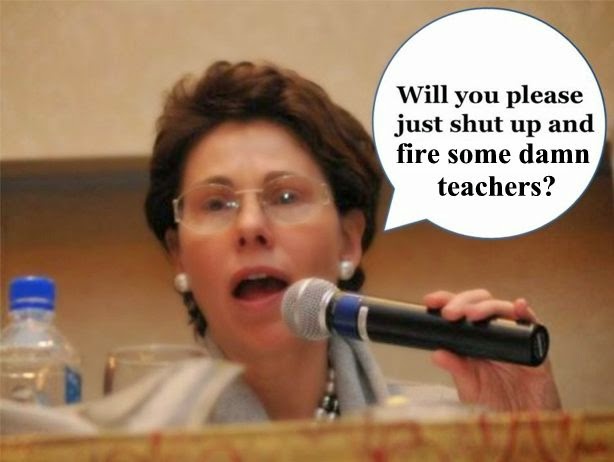Teacher eval proposal could divide districts
A proposal by Regents Chancellor Merryl Tisch to exempt some schools from teacher evaluations would create a class-based system, favoring wealthy districts over those with scarcer resources, some educators say.
"The chancellor seems to be floating a 'yacht' evaluation plan for some communities and non-stop testing pressure for the rest," said Karen Magee, president of the New York State United Teachers union.
Under a plan approved by the state legislature, every teacher in every school statewide is evaluated using the same criteria. But Tisch, in an inteview last week with Capital New York, suggested that "high-performing districts" with a record of strong student performance, including high graduation rates, should be exempted from statewideteacher evaluations. That shift, she said, would let the state Education Department focus on struggling schools while recognizing the achievements of others.
In the Lower Hudson Valley, two districts have state-designated "failing" schools, Yonkers and Mount Vernon. The population of those two schools are primarily black and Hispanic — only 5 percent of students in Mount Vernon and 18 percent in Yonkers are white.
The proposal weakens the presumed intent of the new evaluation system — to ensure that all teachers are held to the same high standard, said Mount Vernon schools Superintendent Kenneth Hamilton.
"To exclude some implies that teachers are single-handedly responsible for how well students perform on standardized assessments," Hamilton said. "While it is certainly a major factor, it is not the sole indicator of student success or failure."
In districts such as Mount Vernon, which have struggled with low graduation rates, many students have extraordinary obstacles to success, Hamilton said.
While many educators — mostly from districts with high graduation rates and strong student performance on tests — saw the idea as a positive step and applauded the move, they also worried that differentiation based solely on student performance would create an unequal system by minimizing the impact of poverty on student performance.
"Districts should be able to work in partnership with the state Education Department to define how each identifies and determines student success," said Harrison schools Superintendent Louis Wool. "Differentiation is far more complex than saying, 'We're going to exempt districts from a particular system based on performance on exams.'"
Ramapo schools Superintendent Douglas S. Adams said the current evaluation system "reflects a troubling pattern of legislative overreach."
"We support strong consideration of proposals that return the decision-making regarding the evaluation of our staff to those who know them best and work with them daily — not politicians in Albany," Adams said.
Pleasantville Superintendent Mary Fox-Alter said while she saw the attempt to "differentiate" as a positive step, there was a lack of clarity on how this could work.
Meanwhile, state Education Department officials said no specifics were available.
"The chancellor raised the possibility of an exemption in order to start a conversation," said spokesman Jonathan Burman. "But she did not specify the precise parameters of what performance measures might qualify a school or district for an exemption, should the Board of Regents choose to consider such a course of action."
State Assemblyman David Buchwald, D-White Plains, whose constituency consists of many high performing schools when it comes to graduation rates and college Tisch: Exempt top districts from teacher evaluations:

